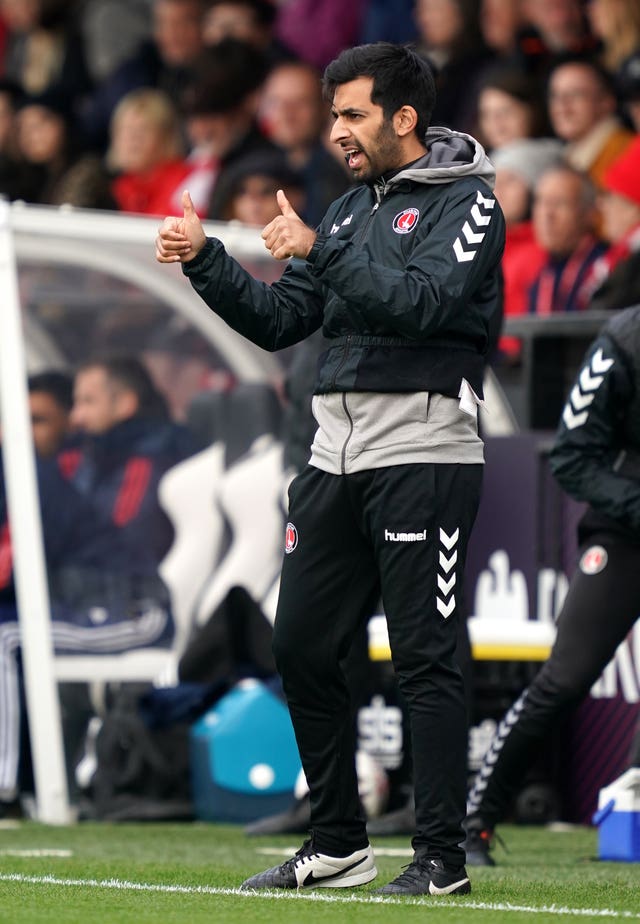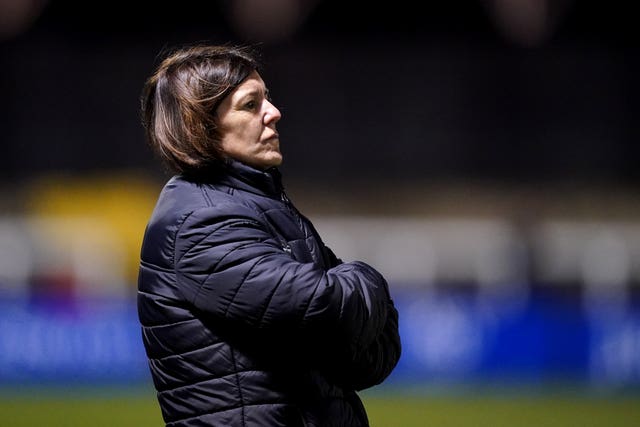Charlton Women assistant boss Riteesh Mishra says while there is "still a lot of work to do" he feels optimistic in terms of South Asian representation in English football, and has stressed the importance of role models and visibility.
Last month the Football Association published an update on its Asian inclusion strategy, which noted the 2011 census showed Asian communities accounting for 7.8 per cent of England's population.
The report said Asian participation within grassroots football for over 16s was at 10.7 per cent (male) and 13.5 per cent (female), while the number of Asian coaches, volunteers and referees was around two per cent.
It said there was a "small number" of professional players of Asian heritage in the men's and women's games, and that around one per cent of both Premier League and EFL apprentices were of Asian heritage.
Mishra, who is British Indian, was in Nottingham Forest's academy from the age of 13. He stopped playing after breaking his leg aged 18 and his subsequent coaching journey has seen him working at Charlton since 2014.
The 30-year-old, the most senior South Asian coach in English women's football, told the PA news agency: "I think there's no one reason why there's a lack of representation. Quite clearly there's a lack of representation within professional football.
"I was at a club in Forest who I think gave me lots of good opportunities and really supported me. I got the sense they were just looking at me as a player and didn't put any other barriers in the way that perhaps others from ethnic minorities may have faced.

"But I don't think clubs are necessarily entirely set up to allow for South Asian footballers to succeed. What I mean by that is there isn't necessarily the coaching structure where young South Asians can see role models or people they can engage with when they go into the training ground that will make them feel really comfortable.
"When you feel really comfortable and you know there's maybe somebody there who understands the journey you're going through, you'll have more confidence and be able to play better.
"I never felt that, so you never have that security of thinking there's people out there who know perhaps the cultural challenges you face, how difficult sometimes it is within South Asian cultures to make the sacrifices you need to to be a professional footballer.
"I think there's still a lot of work to do, but I'd say you can see from the players in professional leagues now, it's getting better, there is more representation. I see more kids, boys and girls, from South Asian communities within academies.
"I think what we need to really do now is focus on when we get players in, can we create a structure that keeps them in for as long as possible. I think the way to do that is having coaches and (other staff) visible at the training grounds."
He added: "Right the way through the pyramid, wherever there's decisions being made on players' or coaches' futures or hiring decisions, there needs to be people who come from diverse backgrounds, so they just have more of a rounded understanding."
Mishra also emphasised the importance of "massively educating the South Asian community about what is required to become a professional athlete or coach."
Speaking about his communications with aspiring coaches and young players, Mishra said: "I feel the (role model) responsibility, but on the other hand, I think there is a responsibility on others to try to uplift people who are in roles, so it's less about self-promotion and more about being visible, and others unlocking doors to be visible."
As well as the Asian inclusion strategy, the FA's diversity work includes the Football Leadership Diversity Code launched in October.
We've released an update on how we're progressing against our plan to increase Asian participation in football across England:
— The FA (@FA) May 7, 2021
Mishra said: "I feel optimistic. I think the FA are doing a really good job of trying to promote programmes, show they want to create opportunities, share role models. I think it's a very good starting point.
"We're starting to see a bit of a movement. It's going to take time. I'd say South Asian representation is massively behind black heritage representation for example in professional football. There's still a long way to go for it to be truly representative."
Mishra says as a player he faced "some direct racism" from opposition players and parents, and felt some stereotyping regarding physique – he also says as a coach he feels "there are certain probably unconscious biases and stereotypes that follow you around".
He added: "There's been situations where I could have maybe turned away from the sport, but I've just decided to try to break down the challenges and barriers and kind of prove my worth."
Mishra became Charlton Women boss in 2016 and oversaw promotion to the Championship in 2018. In March, former Tottenham co-boss Karen Hills was appointed head coach, and Mishra was confirmed as assistant manager last month.

The team go fully professional from July, and Mishra said: "Having somebody who has been through that (Hills) is for the club probably the right thing.
"Although it's a disappointment I'm no longer lead coach, I'm playing a very important role. I think the project at Charlton is really exciting."
Mishra and Hills are both on the FA's Coaching Excellence Initiative programme, created to develop and connect coaches working in the elite women's game.
Mishra said: "It's been fantastic. We're getting a lot of support. Karen and I have been able to build a connection even before we started to work together. It's been a real benefit."
/https%3A%2F%2Fsportsmole-media-prod.s3.gra.io.cloud.ovh.net%2Fuploads%2F2025%2F10%2Fdonyell-malen-3-68e288bedbc10625717953.jpg)
/https%3A%2F%2Fsportsmole-media-prod.s3.gra.io.cloud.ovh.net%2Fuploads%2F2025%2F11%2Fkonate-10-69225c9e8f0fc366713350.jpg)
/https%3A%2F%2Fsportsmole-media-prod.s3.gra.io.cloud.ovh.net%2Fuploads%2F2025%2F09%2Funai-emery-manager-of-aston-villa-on-september-21-2025-68d47af8b263c836659804.jpg)
/https%3A%2F%2Fsportsmole-media-prod.s3.gra.io.cloud.ovh.net%2Fuploads%2F2025%2F11%2Fsm-azzuu-moyes-gueye-6929e5e764dec985013468.jpg)